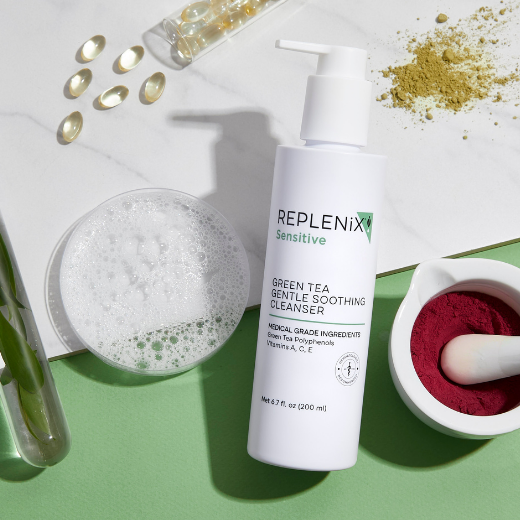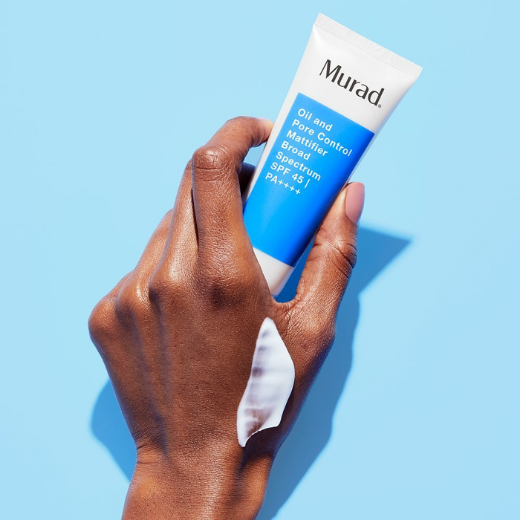Your Skincare Routine for PCOS: The Battle for Clear Skin
Posted by Ellie Swain on Jan 26th 2024
Polycystic Ovary Syndrome (PCOS) is a hormonal disorder that affects approximately 8 to 13% of women of childbearing age. If you’re dealing with PCOS and the not-so-glamorous skin issues that come along with it, don’t worry, you’re not alone.
From cystic acne to hyperpigmentation to excessive hair growth, PCOS can often make us feel like we're fighting an uphill battle when it comes to skincare. But it's time to take control and show PCOS who's boss. If you have PCOS, here’s our best-recommended skincare routine.
The Powerhouse Skincare Routine for PCOS
Acne, dark patches, and hirsutism (unwanted hair growth) are just some of the unwelcome guests for women with PCOS. But fortunately, there are ways to look after your skin if you’re suffering from the hormonal condition.
Firstly, make sure you cleanse, but don't over-cleanse. With oily skin and acne being a common PCOS symptom, it's tempting to scrub our faces raw. However, over-cleansing can worsen oil production and irritate the skin. Stick to a cleanser that’s calming for the skin, like the Replenix Green Tea Gentle Soothing Cleanser.
If you’re experiencing acne, look for ingredients like salicylic acid that help with breakouts. And exfoliating once or twice a week can help remove dead skin cells that may clog pores. Choose a chemical exfoliant like glycolic or lactic acid over harsh scrubs to avoid microtears in the skin.
Likewise, toners with ingredients like rose water or chamomile can calm inflammation and redness. They prep the skin to absorb the next steps in your skincare regimen more effectively.
If you're facing hyperpigmentation, toners with a dash of vitamin C can help lighten dark spots over time. For extra hydration, go for oil-free and non-comedogenic moisturizers.
And believe it or not, even oily skin needs moisturizing. Skipping this step can cause your skin to produce even more oil.

Treating Targeted Issues
A topical retinoid can work wonders for long-term acne, but it's crucial to consult a dermatologist before starting retinol use. The same goes for serums targeting dark spots or excess hair. Prescription treatments like hydroquinone for hyperpigmentation or anti-androgen creams for hirsutism can be effective but must be used under medical supervision.
And remember, sunscreen is non-negotiable. Many treatments and medications for PCOS-related skin issues can make your skin more sensitive to the sun, and let's not forget that excessive sun exposure can exacerbate dark patches. Always opt for a broad-spectrum SPF and reapply it throughout the day. The Murad Oil and Pore Control Mattifier SPF 45 is an excellent daily-use moisturizer for oily skin types.

The Inside-Out Approach: Diet and Lifestyle
What you put into your body is just as important as what you put into your skin. A balanced diet rich in antioxidants, vitamins, and minerals can help regulate hormone levels and potentially improve skin appearance.
Likewise, limiting sugar and processed foods can make a big difference. Many women with PCOS have also found relief in regular exercise - be it yoga, running, or a high-intensity Zumba class. Remember to be patient, though. Switching up your diet and exercising more won’t transform your skin overnight.
Know When to Seek Professional Help
Sometimes, no matter how on-point our skincare routine is, we need an extra helping hand. Don't shy away from seeking professional help if your skin is suffering significantly from your PCOS.
Dermatologists can offer treatments like chemical peels, laser therapy, or medications specifically suited for your skin type and issues.
Spironolactone is an anti-androgen medication often prescribed for women with PCOS to manage excessive acne, oily skin, and hair growth. It works by blocking the effect of androgen hormones, which are usually elevated in PCOS.
Birth control pills can regulate menstrual cycles and help balance hormone levels, improving acne and reducing hirsutism. These pills often contain a combination of estrogen and progestin, which counteracts the androgen hormones responsible for many PCOS symptoms.
It's important to note that while both Spironolactone and birth control pills can offer relief from skin issues related to PCOS, they aren’t suitable for everyone and come with their own potential side effects. Always consult a healthcare provider for a diagnosis and treatment plan tailored to your needs. These medications are often part of a multi-pronged approach to managing PCOS symptoms effectively.
Battling PCOS and its effects on your skin can be frustrating, but remember, you're not in this alone. There are countless products, treatments, and professionals out there ready to help you in your journey to achieve the clear skin you deserve. Keep your head up, keep researching, and keep treating yourself with the kindness you deserve.
Do you want more skincare advice? Here are the best ingredients for lip care products.

